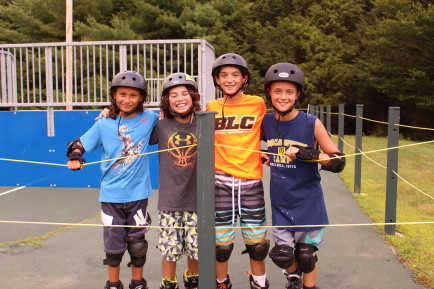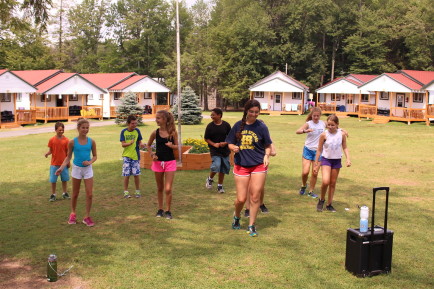Over Scheduled
 If you are like most families today, you live in a world of constant activity. We are a nation of “overscheduled” families, dashing from activity to activity with almost no down time. Children have an enormous amount of extracurricular options these days, from athletic to artistic, and families feel the pressure to do it all. This became clear to me as I tried to set up a play date for my 8 year old daughter. After a few texts back and forth with her friend’s mom, we came to the realization that there was no day available during the week for them to get together. Between the two girls, their schedules were packed with gymnastics, tennis, art, dance, piano, soccer and ice skating. When did 8 year olds get so busy that they can’t find unstructured time to hang out with their friends after school? Our overscheduled lives have become such a norm that we barely notice how much our kids do in a day. Kids are starting their days before school hours with sports practice, extra-learning, orchestra, and clubs, and ending their days late into the night with after school activities and homework. And it’s not just the kids who are overscheduled. Parents are busy driving all over town trying to get everyone to their activities and on time. All this pressure to participate in as many activities as possible is leaving many families physically and emotionally exhausted.
If you are like most families today, you live in a world of constant activity. We are a nation of “overscheduled” families, dashing from activity to activity with almost no down time. Children have an enormous amount of extracurricular options these days, from athletic to artistic, and families feel the pressure to do it all. This became clear to me as I tried to set up a play date for my 8 year old daughter. After a few texts back and forth with her friend’s mom, we came to the realization that there was no day available during the week for them to get together. Between the two girls, their schedules were packed with gymnastics, tennis, art, dance, piano, soccer and ice skating. When did 8 year olds get so busy that they can’t find unstructured time to hang out with their friends after school? Our overscheduled lives have become such a norm that we barely notice how much our kids do in a day. Kids are starting their days before school hours with sports practice, extra-learning, orchestra, and clubs, and ending their days late into the night with after school activities and homework. And it’s not just the kids who are overscheduled. Parents are busy driving all over town trying to get everyone to their activities and on time. All this pressure to participate in as many activities as possible is leaving many families physically and emotionally exhausted.
Parents are well intended and want their children to have as many opportunities as possible to learn new skills and have a competitive edge. We want our kids to participate in organized activities to learn sportsmanship, teamwork, and conflict resolution, and develop a positive self-esteem. We encourage them to try new things, set goals and give it their all. But sometimes too much of a good thing can have a negative outcome. Kids who are overscheduled can often feel tired, anxious, depressed, or complain of physical ailments. They may even fall behind in their school work or lose touch with friends.
 The key is moderation. Well-rounded does not have to mean overscheduled. Signing up for activities your kids love to do is important and will keep them engaged and active, but a day or two for downtime will keep them motivated and happy. Free time allows kids to be creative, independent and self-directed. Finding a balance between structured activities and free time benefits the entire family. It’s all about balance. We have all experienced days when our children express not wanting to go to practice because they are too tired or just want to stay home. It’s a fine line between encouraging them to follow through with their commitment to the team or activity, and giving them a day to just be. Some down time can go a long way.
The key is moderation. Well-rounded does not have to mean overscheduled. Signing up for activities your kids love to do is important and will keep them engaged and active, but a day or two for downtime will keep them motivated and happy. Free time allows kids to be creative, independent and self-directed. Finding a balance between structured activities and free time benefits the entire family. It’s all about balance. We have all experienced days when our children express not wanting to go to practice because they are too tired or just want to stay home. It’s a fine line between encouraging them to follow through with their commitment to the team or activity, and giving them a day to just be. Some down time can go a long way.
I believe the balance of structured activities and downtime is what makes camp so special for kids whose school year is jam-packed with activities. Camp provides structured activities where campers learn new skills and the value of teamwork, as well as down time to just hang out with friends and be imaginative. Camp gives kids a chance to break free of their overscheduled school year and spend time with one another. It’s the chance to sit on the cabin porch before breakfast sharing stories and laughing, shooting hoops or writing letters home during rest hour, or sitting around the camp fire singing songs. It’s these unstructured times that give campers a chance to relax, have fun, and create some of the best memories. Until then, keep kids engaged and busy doing what they love, but also find the time to do nothing at all. They will thank you for it, and you may even get a family moment in as a bonus…enjoy!

